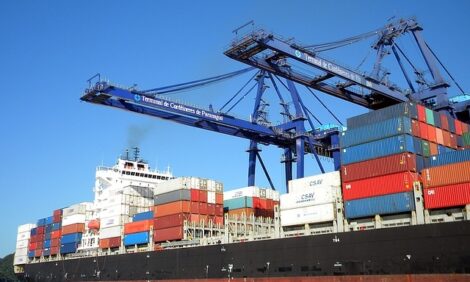



Econiche: World's First E. coli O157 Vaccine
CANADA - Econiche, the world’s first vaccine designed to reduce the shedding by cattle of Escherichia coli (E. coli) O157:H7, has received full licensing approval from the Canadian Food Inspection Agency (CFIA).Econiche is a Canadian discovery developed by Bioniche Life Sciences Inc. The vaccine has the potential to significantly reduce the amount of E. coli O157 shed into the environment by beef and dairy cattle and, in turn, reduce the risk to human health.
The Econiche full license arrives on the heels of an outbreak in North Bay, Ontario, Canada, where more than 200 people are reporting symptoms and there are almost 40 lab-confirmed cases of human illness including one case of Haemolytic Uremic Syndrome (HUS). The illnesses are associated with a Harvey’s Restaurant in that community. Another outbreak involves iceberg lettuce, with 50 people made ill in Michigan, Illinois and Ontario since early September, 2008.
* "If we block the colonization of cows by O157, we basically decrease the number that humans are exposed to" |
|
Dr. Brett Finlay, University of British Columbia microbiologist and bacterial diseases expert
|
Most strains of E. coli are harmless but some, like O157:H7, can cause severe illness and even be fatal when ingested by humans from contaminated meat, vegetables or water. Vaccination of cattle with Econiche can help reduce the risk of food and waterborne contamination with E. coli O157:H7.
“Cows carry E. coli O157:H7 but they don’t get sick. Where the disease comes from is people encountering contaminated food or water, usually from cow feces,” said Dr. Brett Finlay, University of British Columbia microbiologist and bacterial diseases expert, whose research led to the development of the vaccine. “If we block the colonization of cows by O157, we basically decrease the number that humans are exposed to, and thus, dropping the disease levels in humans.”
On-farm interventions to reduce the shedding of E. coli O157:H7 by cattle, such as simple vaccination of cattle with Econiche, have the potential to reduce food and water contamination and the consequences associated with human infection with the deadly bacteria. Clinical trials conducted with Econiche have shown a significant reduction in the amount of E. coli shed in the manure of vaccinated cows.
“We’ve been trying to do our part to be an industry leader in food safety,” said Kym Anthony, owner of specialty beef producer Top Meadow Farms in Clarksburg, Ontario, who has been using the vaccine for the past year under Permit to Distribute Veterinary Biologics. “The E. coli vaccine fits into that. It’s been a missing link in the industry thus far.”
Human exposure and infection with E. coli O157:H7 can result in serious health consequences, including abdominal pain and severe bloody diarrhea. In severe cases, kidney damage can occur and progress to serious complications and even death.
“The announcement of this vaccine’s full Canadian licence is great news,” said Dr. Hazel Lynn, Medical Officer of Health for the Grey Bruce Health Unit, which includes the town of Walkerton, Ontario, where seven people died and more than 2,000 became ill in May 2000 as a result of contamination of the town’s water supply with E. coli O157:H7 in cattle manure from a local farm. “This is an innovative way to reduce this public health risk.”
Another important risk area for the public to be infected by the bacteria is through contact with farm animals at petting zoos and agricultural exhibitions. Vaccinating these animals with Econiche can help greatly reduce this risk of bacteria transmission, something that has been recognized by the Canadian Association of Fairs and Exhibitions (C.A.F.E.).
“C.A.F.E. supports any intervention that will reduce the amount of E. coli O157:H7 that is shed by cattle and may enter the environment, water and/or food chain,” said Rudy Friesen, President of C.A.F.E. “C.A.F.E. also recommends widespread adoption of a proof of vaccination policy throughout Canada, which will ensure that the fairs and exhibition sector has taken all reasonable steps for the public to safely interact with livestock.”
Econiche will be manufactured in the Bioniche production facility in Belleville, Ontario, where a $25-million expansion is taking place, supported by the Ontario and Canadian governments. Vaccine supply will be limited during this manufacturing expansion period.
TheCattleSite News Desk


